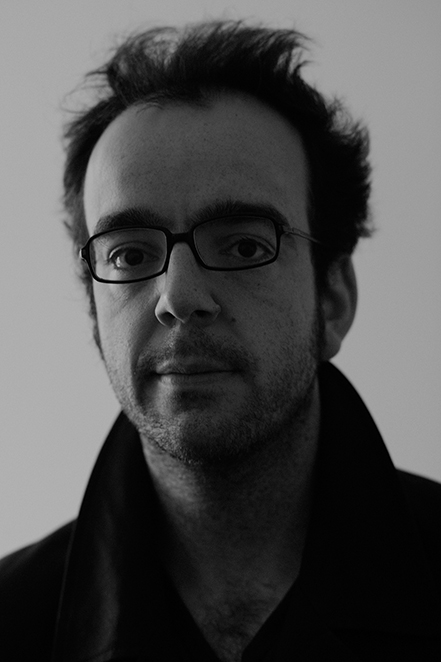
The Performance Penthouse in the Logan Center is packed. Berlin-based experimental musician Anthony Pateras is in the wings, as part of a joint presentation through the Lampo Collective and the University of Chicago’s own Smart Museum, and the promise of his performance has drawn this crowd through the mire. Pateras himself is slight, with a sparse shock of black hair that has a tendency to stick straight up, almost comically. Standing half-shadowed against the soundboard while Andrew Fenchel from Lampo introduces him, he could be just another inquisitive concertgoer, at least until he steps onto the stage. Pateras remains unimposing until the very moment his fingers touch the keys of the grand piano, framed starkly against the rain streaming down the windows behind it.
What emerges is nothing short of spectacular—unique, jarring, and wholly original, not unlike Pateras himself. Born in Melbourne, Australia in 1979, Pateras was classically trained in piano until the age of seventeen. After “a complete detachment and disillusionment with playing other people’s music,” he explained in a post-show interview, he started writing and composing on his own, for himself. His signature repetitive and percussive style is heavily influenced by avant-garde composers like John Cage, Mortan Feldman, and Iannis Xenakis. For Pateras, the American Feldman and the Greek-French Xenakis seem to frame his cultural existence. He says that he likes “to think that’s kind of an Australian thing, ’cause we are pretty much in between Europe and America in cultural influence. I’ve got my guy in Europe and my guy in the States.”
The first piece Pateras performs begins quickly and continues at that breakneck pace for the entire, nearly forty-five-minute arrangement. The arrangement is, at its heart, simple: few notes, played close together, over and over without ceasing, wrist-numbingly fast. He starts low on the keyboard, and then suddenly switches high at several points, the chiming of the upper octaves producing a woodblock effect.
This result is extraordinary. As his fingers hit the keys over and over, the sounds of his fingers, and in turn, the sounds of the hammers hitting the strings of the piano slowly become audible over the course of the performance. Toward the end, the overtones produced by this pounding, like the wobbling of a great steel sheet, match almost perfectly with the whirring of the rotors of the medical helicopter landing on the hospital over his shoulder. He uses the entire piano as his instrument, something he discovered “quite by accident, through experimentation, and realizing one day that the hammers provide this complete other textural harmony.” The small, slightly stooped figure of Pateras before he started playing is gone. Now, as he whips off his spectacles and wipes his brow, he becomes magnified, quite like the increasingly eerie drone rising from the eighty-eight keys in front of him. When it finally comes to a close, he slumps momentarily, stunned, before rising to wearily bow to the audience.
His second piece, done as an encore of sorts, provides some relief from the avalanche of sound of the first piece. It is almost a tone poem, sparse, flowing, and delicate. Neither of the pieces have names, intentionally so, but their anonymity works—it seems a shame to give name to something so elemental.
The son of two different continents, Pateras says he was driven to Berlin by “an impossibility of life” in Melbourne, where the cost of living is high, and because, as he concludes somewhat cryptically, “Melbourne doesn’t want me.” His shared homelands, as well as his involvement in both electric and acoustic projects, make him difficult to nail down, both in genre and location. This performance was his first at the UofC, and only his second in the United States through the Chicago-based, electronic music collective Lampo. He operates on the fringe, which may be as he likes it.
Pateras plays for himself; his brand of music is not necessarily palatable. It is difficult, at points, to sit through. But it is, in the end, the summit of both his musical and artistic visions, and that passion comes across in his raging and powerful playing style. This dynamism carries the listener through, and, as shown by the countless audience members who congratulated him as they filed out, that was enough.
